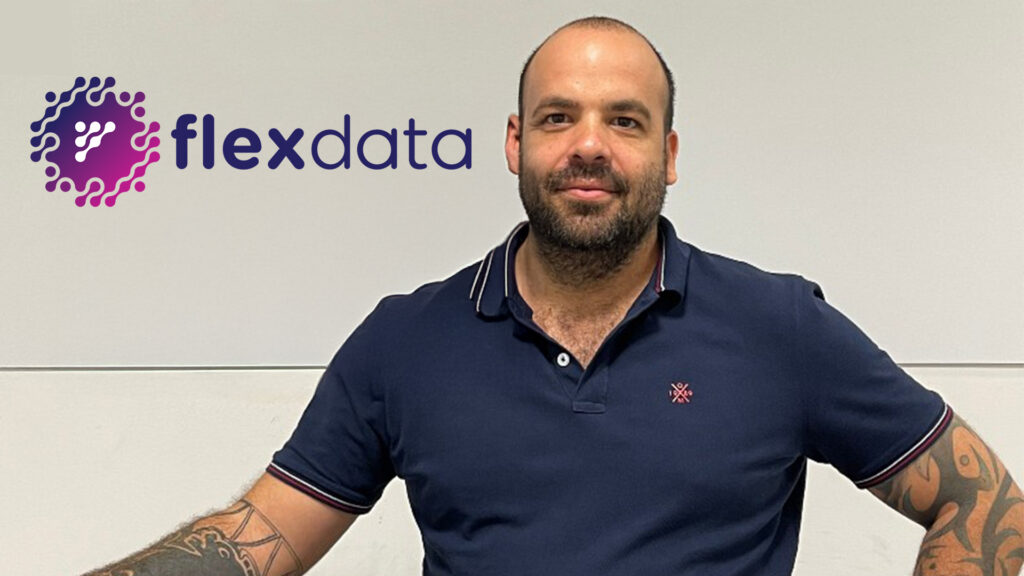
As the climate crisis becomes an increasingly high priority for consumers, energy providers are facing a number of challenges. They have a customer base who are looking for ways to make their energy consumption more sustainable (whether this is by generating their own energy or choosing sustainable providers), whilst also demanding more streamlined and convenient experiences from their energy providers.
The ways in which people consume energy is also changing, with the rise of smart meters and Renewable Energy Certificates meaning that energy consumption can be greener and smarter than ever. However, with these developments come more challenges – from tackling fraud to protecting a huge amount of sensitive consumer data, energy providers have their work cut out for them, and are looking for new and innovative solutions, which is where blockchain comes in.
According to Global Market Insights, the adoption of blockchain technology in the energy sector will generate over $3 billion by 2025 owing to an increase in deployment in the power, oil and gas sectors. Lars Rensing, CEO and Co-Founder of enterprise blockchain provider Protokol outlines five blockchain use cases for energy, oil and gas, illustrating why the energy industry needs to adopt blockchain now.
1. Creating a peer-to-peer energy marketplace
Blockchain can have the hugely transformative effect of facilitating new peer-to-peer energy markets, or microgrids. Using blockchain to power energy trading allows consumers to sell their energy to other participants in their network in automatically verified transactions, without the need for third-parties or central authorities. Microgrids installations are on the rise, with a record number installed in the United States in 2019.
Although this would seem like a rival to traditional energy companies, peer-to-peer energy trading can reduce the costs of managing supply and demand for energy providers, as well as reducing maintenance on the infrastructure delivering energy from generators to consumers’ homes, cutting costs for both providers and consumers. Having the ability to sell excess energy also reduces waste, making it much more environmentally-friendly. Companies have been trialling this solution in order to provide services to homes and businesses interested in managing their own energy supplies.
2. Preventing Renewable Energy Certificate Fraud
As climate concerns grow and consumers demand greener everything, proving that your energy has been generated from renewable sources is becoming more important for energy companies. This is where Renewable Energy Certificates (RECs) come in. These certificates allow consumers to confirm that the energy which they are producing comes from renewable resources, while allowing energy companies to confirm that they are purchasing renewable energy from prosumers. They are the currency of the renewable energy markets, allowing people and organisations to choose cleaner sources of energy, and renewable energy suppliers to tap into consumers who would have been previously unable to access and support them. However, as these certificates are bought and sold as a commodity, it leaves them vulnerable to fraudulent activity. Blockchain can help renewable energy providers to combat this.
Blockchain technology solves the problem of the “double spending” of renewable energy certificates, which in this situation would prevent companies from wrongfully transferring the certificates, and also prevent them prosumers from double spending their renewable energy credits. This means energy providers can guarantee and demonstrate the sustainable origins of their energy, and fraudulent claims at renewability can be prevented.
3. Streamlining the invoicing process with real-time tracking
Billing issues can be a serious problem for oil and gas providers, as evidenced from British Gas’s £9.5 million fine for inaccurate billing in 2017. Providers are looking for new solutions to make the invoicing process as accurate and streamlined as possible. With a combination of blockchain, plant equipment, and sensors mounted onto pipelines, companies can track output in real-time. Sensors can monitor several points on the pipeline to execute accurate billing based on blockchain-powered smart contracts. The blockchain then records and tracks all data related to these smart contracts, and once the sensors confirm the fulfilment of the contract’s terms, the system will execute payment autonomously. Customer invoice processing can then be automated, creating a more streamlined, secure and accurate process.
4. Eliminating the middle-man from trade settlements
Trades between energy companies are often complex. Records of the trades are often kept separately, and are still frequently tracked on paper, meaning that both parties can come out of the trade with different numbers, which can at best create inefficiencies, and at worst breed hostility between trade partners. In business arrangements like this, it doesn’t make sense for one party to take responsibility for tracking costs, so having a single, unchangeable source of truth for transactions can remove these issues. Blockchain allows energy and utilities providers to automatically record and settle transactions, creating a network of partners where no one party owns or controls the data. Without the need for intermediaries, such as brokers or clearing houses, the process is not only made more efficient, but cheaper, due to a reduction in costs associated with trade matching.
5. Accessing smart meters directly
Research predicts that the global smart meters market will grow 9.34% between 2017 and 2022. Smart meters allow for more accurate readings of the energy that consumers use by determining power usage at regular intervals throughout the day. This information is sent back to utilities companies, although it often goes through a number of intermediaries. As an alternative, blockchain allows this information to be stored on a distributed ledger and be automatically accessed by the energy provider. Removing the need for the information to pass through intermediaries saves on costs and increases efficiency for the energy provider, as well as helping them to provide a more customer-centric approach through direct interaction with users.
Personal data being collected in real-time is also a huge concern, as there is a possible risk of violation of users’ privacy. As there are quite a few critical access points, accessing consumer data would be easy if there is a privacy breach and someone gains control over a smart meter connection for conducting billing fraud. Blockchain technology can help secure this process, protecting smart metres against cyber-attacks. The underlying technology offers identification security via private-public encryption with key access and as it is decentralised, blockchain also avoids single points of failure.





















